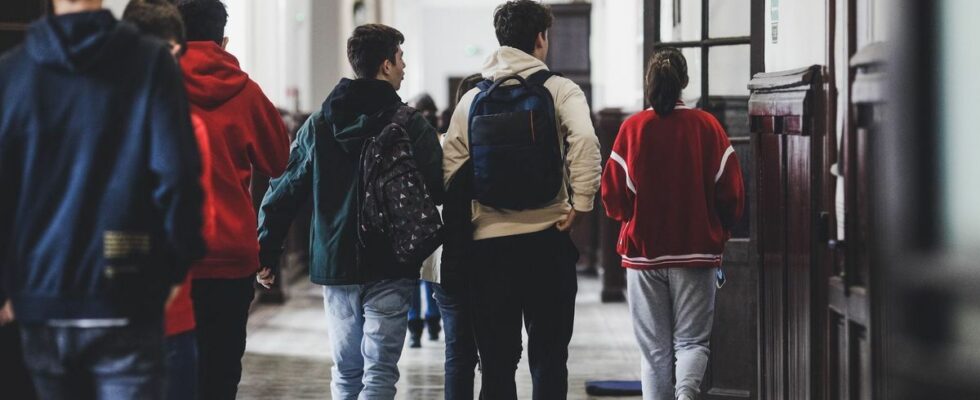Published on
updated on
Reading 3 min.
in collaboration with
Dr Gérald Kierzek (Medical Director of Doctissimo)
Medical validation:
November 9, 2024
In Lyon, a student from Branly high school tested positive for tuberculosis. What actions should be taken to protect other students? Dr Gérald Kierzek, director of Doctissimo, answers us.
According to information collected by Progressa case of tuberculosis was detected at the Branly high school (Lyon, 5th). If the infected student now seems out of danger, families are worried. Can other cases arise? What measures should we adopt to protect the most vulnerable? All the answers from Dr Gérald Kierzek.
An infection that dates back to the end of September
In France, since the 1970s, the incidence rate of tuberculosis has fallen on average by 4.7% per year. However, although the incidence is low in France, some isolated cases are still detected. In Lyon, a high school student tested positive at the end of September.
The problem ? The parents of students at the Branly high school appear to have only been informed of this recently, via an email dated November 5.
“In this situation and despite the very low risk of contamination, the precautionary principle naturally applies. You will receive a letter specifying the terms and variations of the precautionary protocol. A meeting at the high school, scheduled for Wednesday, November 13 at 6 p.m., will allow you to meet (the nurse)“, specifies the letter obtained Progress.
The rectorate, for its part, affirms that the situation is “under control” and that “certain students will be tested” as part of the protocol. He also told our colleagues that the student infected with tuberculosis “was treated” and he was able to return to school.
The directorate of national education services also affirms that “the head of the establishment has already organized an information meeting” to warn the parents concerned. But some claim to have only been informed of the said protocol recently (on November 5). A lack of transparency, which raises serious questions.
According to Dr. Gérald Kierzek, medical director of Doctissimo, a very specific process is put in place.
“A screening test will usually be done to determine if you have been infected. This may include a tuberculin skin test or blood test (IGRA test). Even if the initial test is negative, a period of monitoring may be recommended, with regular checks over several months. If latent tuberculosis infection is detected, preventive antibiotic treatment may be prescribed. This treatment aims to prevent the development of active tuberculosis. he confides.
The medical director of Doctissimo also recalls that although vaccination against tuberculosis (“BCG”) is not compulsory in France, it remains recommended.
“Vaccination with BCG (Bacille Calmette and Guérin) is the only way to protect against tuberculosis. It limits the risk of developing infection and prevents serious forms of tuberculosis in young children (mainly tuberculous meningitis). Its effectiveness varies from 75 to 85%“, confirms the Health Insurance website.
A vaccine, which targets in particular three categories of population particularly affected by the disease and for which control and prevention efforts must be focused: “homeless people, detained people and people born outside France“, estimated Public Health France.
Dr Gérald Kierzek invites French people to:
- Wear a respiratory protection mask (FFP2) in the presence of the infected person, especially in confined spaces or for prolonged periods;
- Maintain good hand hygiene, using a hydroalcoholic solution for 30 seconds;
- Avoid prolonged and close contact with the infected person until they are no longer contagious;
- Stay alert for the appearance of symptoms such as persistent cough, fever, weight loss, and consult immediately if in doubt.

